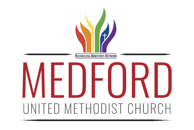
Doom to those who desire the day of the Lord!
Why do you want the day of the Lord?
It is darkness, not light;
as if someone fled from a lion,
and was met by a bear;
or sought refuge in a house,
rested a hand against the wall,
and was bitten by a snake.
Isn’t the day of the Lord darkness, not light;
all dark with no brightness in it?
I hate, I reject your festivals;
I don’t enjoy your joyous assemblies.
If you bring me your entirely burned offerings and gifts of food—
I won’t be pleased;
I won’t even look at your offerings of well-fed animals.
Take away the noise of your songs;
I won’t listen to the melody of your harps.
But let justice roll down like waters,
and righteousness like an ever-flowing stream.
Reflection
Everyone loves the last part of this passage (“But let justice roll down like waters…”) and forgets about the first part! You can’t blame people for that. It’s just too difficult. “It’s as if someone fled a lion and ran into a bear…” is hardly a way to attract anyone to faith.
At its core, this text is about religious hypocrisy, a recurring theme for many of the prophets, right up to Jesus (check out Matthew 23). Amos’ message here is that everyone wants to see the day of the Lord’s coming, thinking it will be great and glorious. But when it comes, they will be surprised because they’ve been preparing for it all wrong.
Many people are busily practicing religion, thinking that’s what God requires. But God is not content with saying the right prayers, singing the right songs or attending the ‘right’ church. All these things are a means to an end, never an end in themselves. Instead our Creator wants to know whether we are caring for our neighbors, whether we are standing up for the poor, whether we are living lives of integrity. These are the real questions for people of faith.
For Pondering & Prayer
What do you think is the difference between “practicing religion” and “living a faithful life”? Does one lead to the other? Does either exclude the other?
How are you doing with the things mentioned above: caring for your neighbors, standing up for the poor, living a life of integrity? Where are you falling short?









Comments are closed.